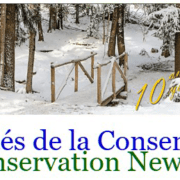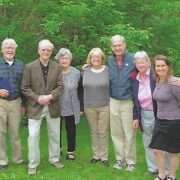By Marie-José Auclair, President of Appalachian Corridor’s Board of Directors
Although hiking is a low-impact activity for the environment, our behaviours while enjoying the trails can sometimes be devastating and lead to permanent impacts on surrounding flora and fauna. Garbage, fires in forbidden areas, improvised bathrooms in the bushes, and loud hikers; all of these disturbances can unfortunately be damaging to natural habitats and spoil our intimate contact with nature. The principles of the program Leave No Trace (www.leavenotrace. ca) offer an outdoor code of conduct adopted by more than 90 countries and suggest the adoption of key behaviours for the practice of our activities on foot, on bikes, on skis or in kayaks in order to leave natural habitats intact
Appalachian Corridor encourages the adoption of the following seven principles from Leave No Trace:
• Plan ahead and prepare for the unexpected in order to have a safe and pleasant experience.
• To avoid damaging the vegetation and reduce erosion, travel only on established and durable surfaces, and camp on designated sites.
• Dispose of waste properly and don’t leave any items behind.
• Leave what you discover intact so that others may enjoy it too in its most natural state.
• Minimize campfire impacts and preferably use a lightweight stove as a heat source.
• Respect wildlife and avoid disturbing animals, especially during the delicate periods of mating, nesting, or raising young.
• Be considerate of other visitors by limiting excessive noises, let nature’s sounds prevail so that all can enjoy their experience.
Reproduced with the permission of Appalachian Corridor, our partners in conservation.





